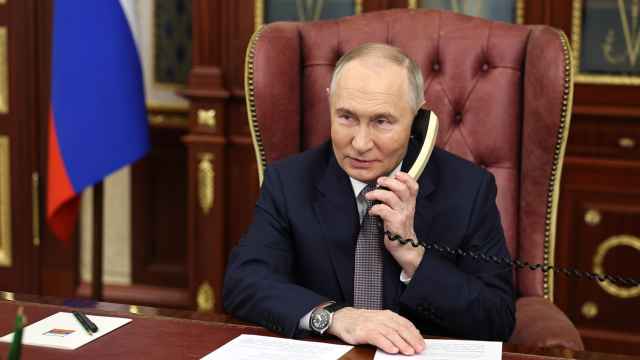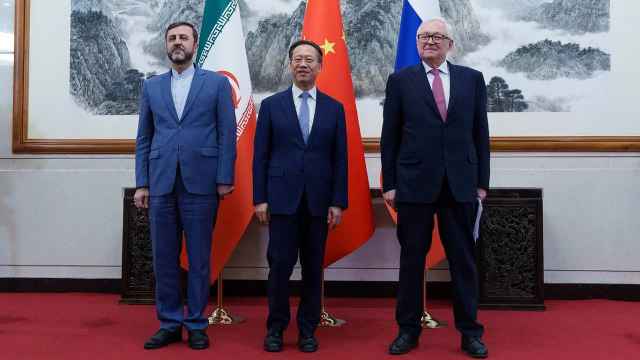The MT Conferences section did not involve the reporting or the editorial staff of The Moscow Times.

Kirill Roubalsky
Senior Associate
Dentons
The new rules for transfer pricing in Russia, which are essentially based on the OECD recommendations, have been in effect in Russia for almost three years now (they were introduced on Jan. 1, 2012). During that time the provisions of the Tax Code dedicated to the issue have generated more questions than answers. Big businesses operating in Russia have already gotten used to preparing each year the documents justifying the prices applied to transactions with affiliates, but to date the central office of the Federal Tax Service has not completed a single audit on the correct application of transfer pricing rules (several audits of major Russian companies are currently underway). As before, companies can only try to guess what approach precisely the tax inspectors will take when applying transfer pricing rules, and what claims they may have against pricing.
The first problems that arise when applying transfer pricing rules are the rules themselves. The principle of legal certainty is a keystone principle in both international and Russian law. Without going into the legal intricacies, this principle can generally be described as follows: upon reading the law, any person or company should be in a position to understand the legal consequences of a course of action. In other words, in an ideal world, the law would be so clear and understandable that one would know with certainty whether specific actions are a violation of it or not.
Strictly speaking, transfer pricing rules are not rules but a set of principles and methods that holding companies and the tax administration should use to calculate market prices or the "market" profitability rate applicable to transactions within a group of companies, in other words, transactions between affiliates. Any set of principles and methods can always be used in a variety of ways and it's not feasible to clearly distinguish between "black" and "white," what's legal and what's illegal. This is precisely what worries businesses the most. Having read the rules in the Tax Code, it's impossible to determine exactly which prices need to be set in contracts. Nor can one determine exactly how documents should be drafted to justify price calculations in order to minimize the risk of claims from the Federal Tax Service. Of course there are international guidelines—primarily those issued by the OECD itself—which are supposed to help businesses and the state to correctly apply transfer pricing methods. However, those guidelines are not legally binding on the Tax Service. As a result, not even the most transparent and law-abiding companies whose only desire is to avoid a dispute are safe from the potential burden of transfer pricing related tax assessments.
For these reasons, in the presence of a budget deficit the tax authority is tempted to use the transfer pricing rules as a universal fiscal chainsaw allowing it to "cut" extra profits off of large companies in order to patch up holes in the budget. The transfer pricing rules potentially provide vast opportunities for additional tax assessments, and the limits of discretion and the number of information sources are considerable. At the same time, the general approach to applying transfer pricing rules may change at a moment's notice, turning them from an impending albeit vague threat on the taxpayer, into a tool of tax genocide (as was the case with thin capitalization rules, for example).
Traditionally, the Russian commercial arbitration courts and the court practice they shape (in the case of transfer pricing these would be the Moscow District courts) may serve as a barrier against the tax authorities. But another problem with transfer pricing arises here: it's not so much lawyers as economists who are needed to correctly apply the rules. Transfer pricing rules have an economic basis and rely on economic categories (profitability, market, demand, assets, financial risks, etc.). It's difficult to deal with transfer pricing without understanding microeconomic processes and the fundamentals of how commodity markets function.
Most Russian judges can be called inveterate lawyers: almost none of them have worked in the private sector and they have no practical experience of business economics. As a result, transfer pricing disputes are challenging to adjudicate even for the best judges, as is amply demonstrated by the "automotive" disputes on the application of the previous rules (Article 40 of the Tax Code) involving Russian subsidiaries of foreign automotive manufacturers engaging in import and distribution of automobiles. These disputes turn into a "battle of the experts" in which the party that was able to "sell" the candidacy of its expert providing the required opinion wins. As a result, the importers have an increased likelihood of losing, despite what would seem to be obvious reasons for selling cars on the Russian market at lower prices: the global economic crisis of 2008 and the slump in car sales in the country as a whole. It's not very likely that the situation will change much when the judges start to adjudicate disputes over how to apply the new rules, because the government has no plans to bring into the judiciary people with actual business experience.
Businesses will be able to get answers as to how the tax authorities will treat transfer pricing rules only after the results of the first audits have been made public. Until then it's worth steadily building a defense by strengthening the justifying component of documents and enlisting the support of experts, who in the event of a dispute are capable of opining in favor of the company in court.
The MT Conferences section did not involve the reporting or the editorial staff of The Moscow Times.
A Message from The Moscow Times:
Dear readers,
We are facing unprecedented challenges. Russia's Prosecutor General's Office has designated The Moscow Times as an "undesirable" organization, criminalizing our work and putting our staff at risk of prosecution. This follows our earlier unjust labeling as a "foreign agent."
These actions are direct attempts to silence independent journalism in Russia. The authorities claim our work "discredits the decisions of the Russian leadership." We see things differently: we strive to provide accurate, unbiased reporting on Russia.
We, the journalists of The Moscow Times, refuse to be silenced. But to continue our work, we need your help.
Your support, no matter how small, makes a world of difference. If you can, please support us monthly starting from just $2. It's quick to set up, and every contribution makes a significant impact.
By supporting The Moscow Times, you're defending open, independent journalism in the face of repression. Thank you for standing with us.
Remind me later.





